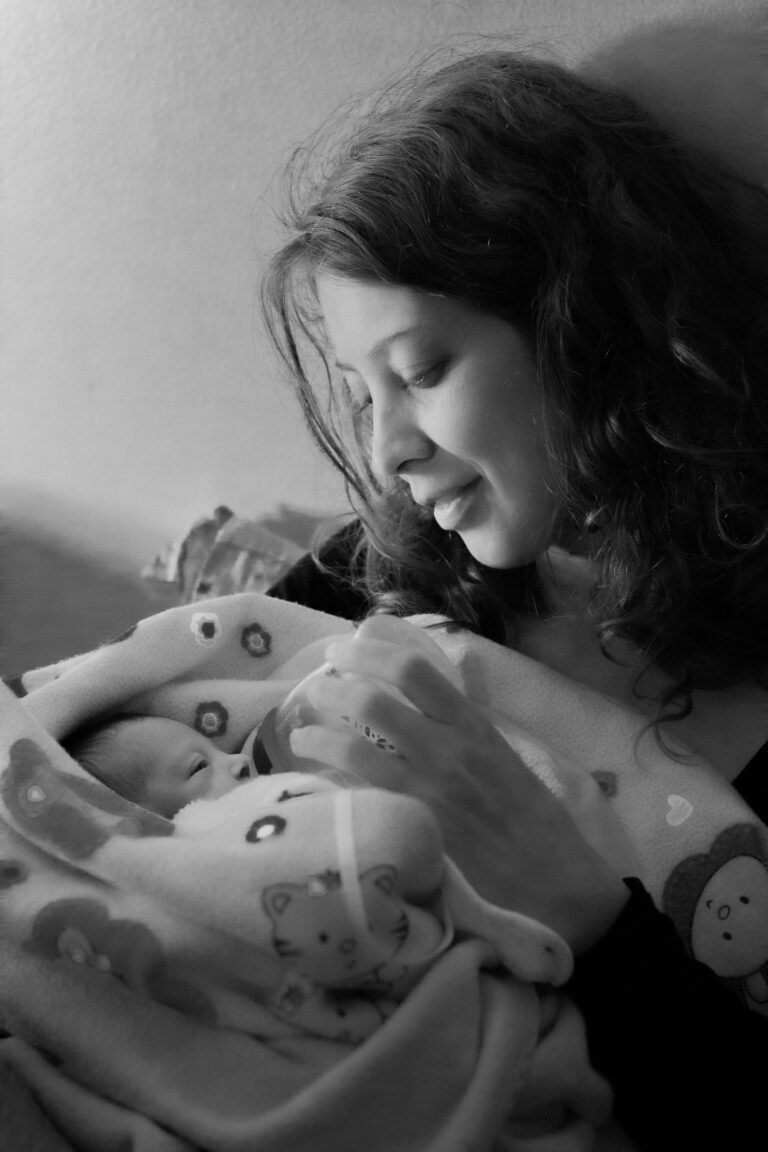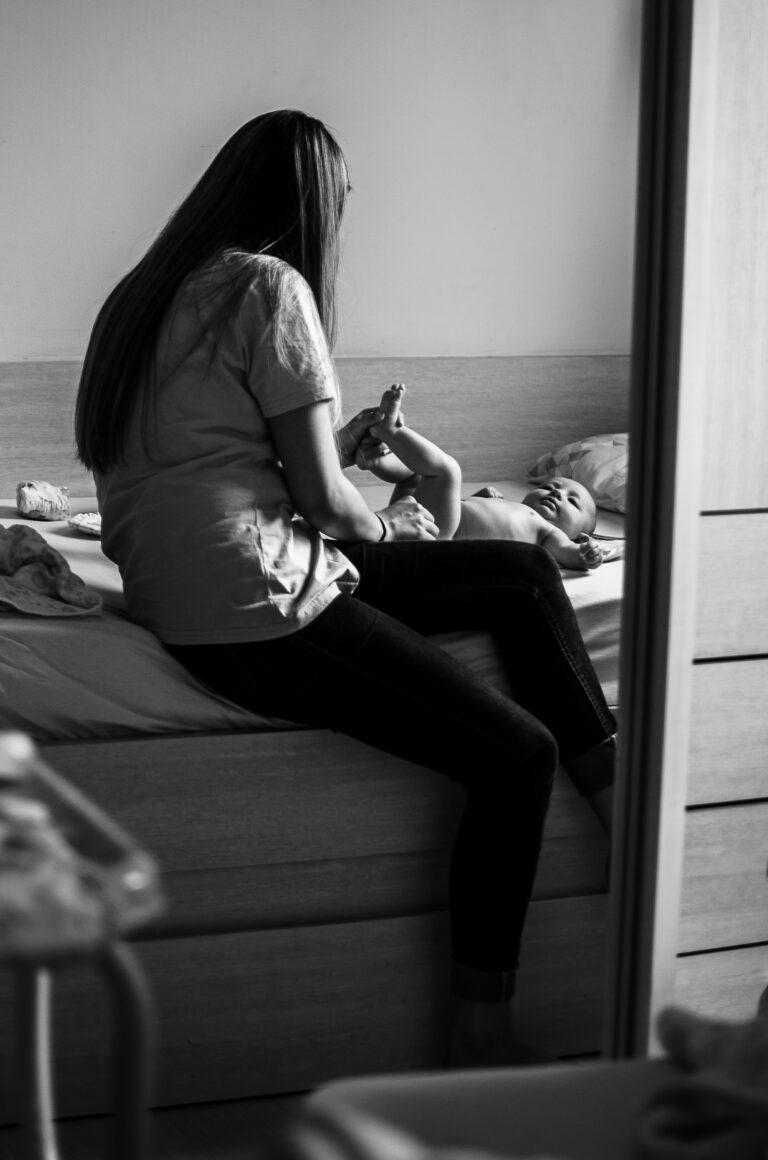Bringing a newborn home transforms every aspect of daily life—late-night cries, the smell of fresh powder, those first hesitant smiles. Amidst the flurry, many parents focus so keenly on the baby and mother that another struggle often slips quietly into the background: paternal postpartum depression. Perhaps an unexpected term for some, yet the reality for many fathers, who, behind a brave face, fight a persistent gloom, surges of fatigue, or a sudden sense of disconnection. Ever found yourself wondering why a new dad—frequently pictured as the unwavering pillar—might suddenly seem withdrawn, irritable, or lost? Understanding these changes, finding the words for them, and recognising how to help can change not only the father’s journey, but shape the emotional landscape of the whole family. Let’s peer carefully into the nature, signs, and solutions surrounding paternal postpartum depression, shed light on hidden battles, offer reassurance, and explore how proactive support can foster resilience.
Recognising And Understanding Paternal Postpartum Depression
What exactly is paternal postpartum depression? While you might easily spot maternal blues in those early weeks, depression in fathers moves differently—like a tide out of rhythm, it often drifts in quietly, sometimes months after the baby arrives. Medically, paternal postpartum depression is a cluster of emotional and physical symptoms that linger: relentless sadness, irritability, worry circling over the baby’s wellbeing, or a kind of emotional numbness that makes daily moments feel oddly distant.
But what triggers this in fathers? Unlike mothers, fathers don’t experience the profound physiological upheaval of pregnancy, yet hormonal changes are far from absent. A curious dip in testosterone, surges in cortisol, and altered prolactin levels can destabilise mood. Now, add the psychological leap from “partner” to “parent”, lingering memories of one’s own father, or pressure to excel both at the office and at home—no wonder that nearly 8-13% of new fathers report symptoms of depression. When both partners are touched by postpartum sadness, the odds double for the dad.
Often, symptoms play hide-and-seek. Some fathers might bury themselves in longer work hours, social withdrawal, or even sudden outbursts of anger, while others grapple with unyielding fatigue, appetite change, headaches, or a constant need to escape—sometimes sliding into unhealthy coping mechanisms. Are these warning signs easy to spot? Not always—especially when attention hovers over the mother and child, leaving the father’s struggles unspoken.
Causes And Risk Factors: Peeling Back The Layers
What transforms fleeting stress into full-blown paternal postpartum depression? The answer is rarely just one culprit—the picture is a tapestry of biology, psychology, and environment:
- Biological shifts: Hormonal fluctuations (yes, even for men!), chronic sleep deprivation, and relentless exhaustion pave the way for mood disorders.
- Psychological terrain: Prior bouts of depression or anxiety, or deep-seated self-doubt about stepping into fatherhood’s shoes.
- External pressures: Unexpected complications at birth, preexisting tensions in the couple, the weight of financial worry, or juggling family and workplace duties.
- Family environment: When relationships fray or responsibilities balloon, fathers may feel marginalised or unsure about their place in the parent-child dynamic.
- Social influences: Societal expectations often prescribe resilience and silence, while traditional roles might discourage fathers from expressing vulnerability.
When the mother struggles with her own mental health, the domino effect looms large—half of such fathers might also slip into depressive states. Young age, unmarried status, lack of support, and tough economic realities further amplify the risk.
Spotting The Symptoms: More Than Sadness
Not all sadness points to clinical depression, but a string of emotional, behavioural, and physical symptoms can wave a red flag:
- Persistent sadness, sometimes disguised as irritability
- Low energy, even after rest, and pronounced fatigue
- Trouble connecting to the infant or finding joy in milestones
- Escapism, whether through work, screen time, or occasionally substance misuse
- Anger, short temper, or frustration that flares up seemingly without reason
- Sleep disturbances: insomnia, or trouble staying asleep despite exhaustion
- Withdrawal—not only from family, but from activities once enjoyed
- Unexplained physical issues: headaches, stomach discomfort, muscle aches
- Feeling “not good enough” or overwhelmed by the demands of parenting
It’s easy to ask, “Isn’t this just normal adjustment?” And indeed, many new parents ride emotional roller coasters. The difference lies in persistence and intensity—paternal postpartum depression lingers, stripping away the ability to find pleasure or hope in day-to-day life.
Barriers To Diagnosis And Seeking Relief
Despite the number of fathers affected, stigma and social scripting keep many silent. If men are taught to “tough it out”, sadness appears as weakness. Add to this the overwhelming focus on mother and baby, and fathers’ needs may be missed. Screening tools originally designed for maternal symptoms may not fit male experiences—anger or avoidance behaviours often slip under the radar of questionnaires fixated on overt sadness or guilt.
Even when a father dares to voice his struggle, medical professionals lack standard protocols for identifying and addressing paternal postpartum depression. What gets lost in translation? Subtle cues—anger, withdrawal, substance use—might be misattributed to “normal stress”, leaving dads adrift without support.
Impact On Family, Child, And Relationships
Why does paternal postpartum depression matter beyond the father’s immediate wellbeing? Consider the ripple effect:
- Father’s health deteriorates: sleep loss, changes in eating patterns, increased chance of substance reliance.
- Relationship stress: couples report more arguments, colder silences, or a sense of emotional distance.
- Child development: research consistently signals greater risk for emotional and behavioural issues in children whose fathers are depressed, particularly when both parents are affected.
- Family functioning: a depressed father might participate less in daily care and bonding, which shapes how the baby learns, trusts, and grows.
Can the strain be reversed? Absolutely—with the right steps early on.
Screening, Prevention, And Early Strategies
What if screening for paternal postpartum depression was routine during paediatric or postpartum check-ups? Recognising fathers’ emotional state early matters—especially with known risk factors. Practical steps include:
- Including fathers in routine mental health check-ups, particularly if maternal mood disorders exist
- Pre-birth parenting classes that set realistic expectations and normalise doubts and confusion
- Offering psychological support to those showing early signs, especially after traumatic births or relationship stress
- Educating healthcare teams to actively assess and screen both parents for mental wellbeing
- Guiding fathers to resources and peer groups, both local and online, that break down isolation and stigma
Treatment And Pathways To Recovery
What transforms a difficult phase into a story of healing? Medical evidence is clear: paternal postpartum depression is treatable. Recovery usually follows a combination of:
- Therapy: Whether one-on-one, with a partner, or in a group of peers, talking allows fathers to process identity shifts, manage relationships, and learn concrete skills for coping.
- Medication: In some cases, antidepressants prescribed by a psychiatrist—always with follow-up and family discussion—offer relief for moderate to severe symptoms.
- Lifestyle adjustments: Good sleep hygiene, physical activity, a balanced diet, and limiting alcohol or substances all benefit mood.
- Peer support: Connecting with other new dads—sometimes even anonymously online—to share experiences, gain insight, and realise they are far from isolated in this journey.
- Communication: Encouraging honest dialogue with a partner, trusted relative, or medical professional can lift the burden, open avenues to help, and re-weave the sense of family solidarity.
Supporting Fathers: Family Bonds And Community Awareness
How can families and communities become havens rather than hurdles? Patience, open ears, and non-judgemental support go a long way:
- Dividing childcare and home responsibilities reduces overload and makes space for dads to bond with their baby
- Acting as a sounding board—sometimes just listening is the most powerful help
- Inviting fathers into everyday parenting routines: feeding, bathing, bedtime stories—the small acts of care anchor parental confidence
- Participation in parent groups, community forums, or accessing health information platforms can empower fathers with practical advice and hope
- Proactive public health campaigns, educational modules in workplaces, and family health clinics can help bring paternal postpartum depression into open dialogue—shifting from stigma to support
Key Takeaways
- Paternal postpartum depression is more common than many realise, and its signs are often missed—all parents deserve attention, not just mothers.
- Symptoms such as sadness, irritability, fatigue, or withdrawal that last more than a few weeks after becoming a father warrant attention, especially when family dynamics begin to suffer.
- Biological changes, sleep disruption, and psychosocial stressors all play a role; understanding this is the foundation for practical support.
- Early intervention—via check-ups, education, and supportive partnerships—helps fathers recover faster and strengthens the entire family.
- Healthcare professionals and compassionate communities can make a measurable difference by offering resources, medical care, and connections.
- For parents searching for easily accessible support and child health tools, downloading the application Heloa provides expert advice, practical questionnaires, and guidance—all designed with family wellbeing in mind.
Questions Parents Ask
Can paternal postpartum depression affect the bond between father and baby?
Yes, it can. When a father feels persistently low, drained, or overwhelmed, even small moments of closeness with the baby may feel out of reach. This does not reflect lack of care or ability—it’s often a temporary phase related to mood changes. Over time, especially with encouragement and gentle support, bonding usually strengthens. If connecting with the infant remains hard or causes distress, seeking professional advice can reveal tailored approaches for healing and relationship building.
What can partners or family members do to support a father experiencing postpartum depression?
Family members are in a powerful position to help simply by being present with patience, offering to share practical tasks, and showing a willingness to listen—without pressure or judgement. Suggesting a conversation with a healthcare provider or encouraging attendance in parent groups can open new avenues for support. Small gestures, such as validating feelings and sharing childcare, create a more peaceful atmosphere and can shorten recovery time.
Are there specific risk factors that make some fathers more likely to develop postpartum depression?
Certainly. Any history of mood disorders, ongoing relationship stress, lack of social support, unexpected changes (such as job challenges or health scares), and disrupted sleep all raise the chance of developing paternal postpartum depression. Recognizing these factors allows parents to be proactive—by building support, talking openly about worries, and, when needed, connecting to professionals specialised in parental mental health.
Further reading:









